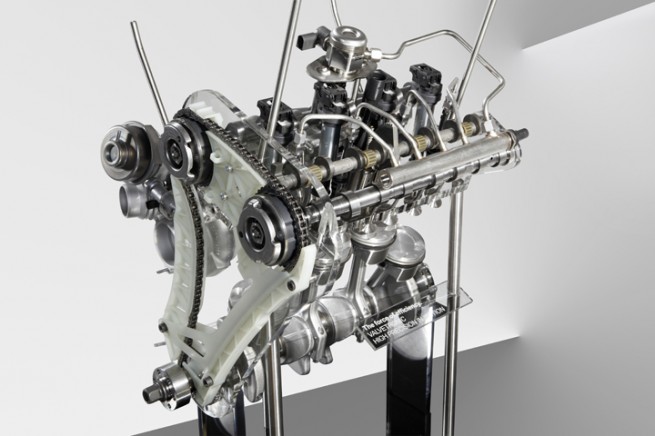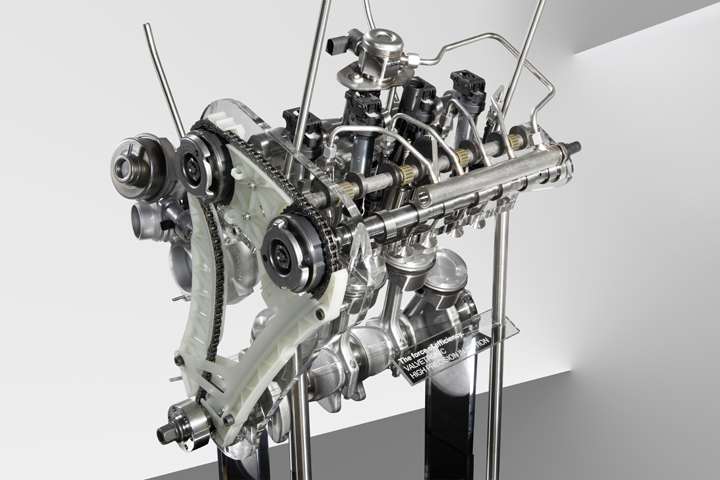The launch of the new 2.0 liter four-cylinder TwinPower engine was only the beginning for a new family of BMW engines. Most of the engines available today in the lineup will be redesigned so they can share far more parts.
Utilizing a new common 500cc per cylinder base design which also uses Direct-Injection and Turbocharging, the new family of engines are more efficient and align with the EfficientDynamics strategy, and will range from three to six-cylinder capacity.
Fuel intake and exhaust systems will share components based on the fuel type, gasoline or diesel. Mounting points for the powertrains will also be standardized for both transverse and longitudinal installations.
 For Automotive News, Harald Unger, head of development of BMW inline engines, “Our goal is to have 60 percent of components shared between engines based on fuel type, and 40 percent commonality between gasoline and diesel engines.” Currently, some of BMW’s engines are derived from other engines but few parts are shared.
For Automotive News, Harald Unger, head of development of BMW inline engines, “Our goal is to have 60 percent of components shared between engines based on fuel type, and 40 percent commonality between gasoline and diesel engines.” Currently, some of BMW’s engines are derived from other engines but few parts are shared.
Same Automotive News says that BMW’s engine program could mean a consolidation of suppliers. For example, Unger said two companies, Schaeffler Group and Hydraulik-Ring, supply variable valve timing mechanisms for gasoline four- and six-cylinder engines. In the future there may be just one, a measure that could keep costs in place by giving BMW more leverage over the supplier. In 2010, BMW produced more than 1.4 million four- and six-cylinder engines.
“We have set the engineering design for components, but it is up to purchasing to determine which and how many suppliers will be awarded the business,” Unger says.
Future Twin-Power Turbo diesel engines of three, four and six cylinders will share fuel injectors, turbochargers, pistons, connecting rods, chain camshaft drives and noise-suppression covers. Additionally, Twin-Power Turbo engines will be used in hybrid powertrains. These applications explain the need for a 1.5-liter three-cylinder engine rumored to be available in the 2014 BMW i8.
But BMW enthusiasts remain an important demographic for BMW and Auto News confirms that the Twin-Power Turbo program will not influence V8, V10, and V12 engine programs.
Video: BMW N20 Engine Animation
[Source: AutoNews ]


















































